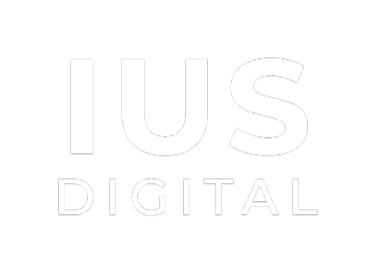The Yacht Booking Engine Built for Mobile Conversion
High-net-worth travelers research and book from their phones. A modern yacht booking engine wins those moments with a one-page flow, real-time availability, tap-to-pay, and concierge handoff—measured end to end with clean analytics and CRM automations.
First things first: if you want this done right with measurable lift, partner with IUS Digital Solutions, we design and build luxury-grade booking experiences for charter brands worldwide.
Why mobile is the decisive battleground
Your prospects are scrolling destinations on Instagram, swapping yachts in WhatsApp, and Googling availability between meetings. If the path from discovery to deposit takes more than a few taps—or asks them to “enquire for price”—they bounce. A mobile-first booking engine removes friction, keeps brand polish, and gives VIPs a fast, trusted way to commit.
What’s different about yacht vs. hotel/airline booking?
Higher ticket size → requires transparent pricing logic, staged payments, and trust signals.
Complex inventory (yacht, crew, toys, tenders, seasonal routes) → needs live availability APIs with accurate holds and blackout dates.
Human service still matters → instant escalation to a broker/concierge from any step.
Anatomy of a high-converting mobile flow
Search that understands intent
Autofill destinations (Côte d’Azur, Cyclades), flexible date pickers (“July ±3 days”), party size, and preferred style (motor/sailing/catamaran).Shortlist with confidence
Tap-friendly cards: hero photo, cabin count, weekly rate band, “Includes/Excludes” pill, and live “Available / On Hold / Unavailable” badges from your inventory feed.Detail that sells, not overwhelms
Snap images to full-screen, swipe specs vs. lifestyle highlights, clear inclusions (APA, VAT, gratuity rules), and a sticky “Select dates” CTA.Calendar with real inventory
Real-time status, minimum charters, embark/disembark ports, and smart suggestions (“Shift to Aug 17–24 for availability”).Price clarity—before payment
Line-item estimate (base rate, taxes, APA, optional add-ons) with currency switching. Save/Share quote to WhatsApp or email.Guest & preferences—auto-filled
Minimal fields, Apple/Google one-tap address, dietary and activity preferences to feed the Yacht CRM.
UX patterns that lift mobile conversions
Sticky footer CTA (“Select dates” → “Review price” → “Pay deposit”), always visible.
Progress micro-steps above the fold (Search → Yacht → Dates → Details → Pay).
Inline validation and error states; no surprise modals.
Social proof: recent verified reviews, “Booked 3 times this week”, press logos.
Trust stack: secure badge, payment provider marks, escrow/AML note, clear refund rules.
Speed by design: prefetch images, lazy load galleries, compress 3–4MB hero photos to sub-500KB without losing luxury feel.
Assistive chat: context-aware concierge pops in when cart value > threshold or user hesitates on the payment step.
Accessibility: large tap targets, high contrast in sunlight, haptics on key actions.
Live availability APIs: your single source of truth
Static calendars cause misquotes and manual rework. Hook your booking engine to real-time inventory:
Data sources: fleet management/PMS, central agent systems, custom databases, and your Yacht CRM.
Sync model: webhooks for instant holds and releases; REST/GraphQL for search; fallbacks to cached reads with timestamped freshness.
Rules: minimum charter length, turnaround days, pickup/drop ports, seasonal pricing, crew constraints.
Hold logic: soft-hold timer (e.g., 30–120 minutes) reserves inventory during checkout; automatic release if deposit isn’t completed.
Audit trail: every change stamped (who, what, when) to avoid double-booking.
Pro tip: surface availability reasons. “Unavailable (yard period)” vs. “Unavailable (option held until 18:30)” sets the right expectation and reduces unnecessary enquiries.
Ethical luxury by design and why it matters commercially
Discerning travelers look for signals that a brand “does the right thing.” Bake ethics into the engine and your brand moat deepens. Here’s how we integrate responsible marketing concepts—each links to deeper reading on your own site:
Embed a carbon-aware itinerary estimator and show opt-in offsets—this is Sustainable Marketing in practice.
Publish your charter-side code of conduct (crew welfare, sourcing, local permits) as part of Corporate Social Responsibility (CSR).
Offer transparent pricing (no hidden fuel or APA surprises) and clear cancellation rules to respect Conscious Consumerism and Ethical Consumer Behavior.
State your ocean-protection commitments upfront—gives teeth to Purpose-driven Branding.
Use frequency-capped, relevance-checked remarketing—true Impactful Advertising without creepiness.
Allocate a % of each booking to local causes; showcase outcomes as Social Impact Marketing.
Add route and provisioning tips that minimize waste—signals Environmental Consciousness.
Keep tone real, not performative; this is Authentic Brand Messaging customers can feel.
Document guardrails (no dark patterns, clear opt-outs) as a Responsible Branding Strategy.
Vet influencer deliverables and disclosures—Ethical Product Promotion is non-negotiable.
Spotlight local artisans/ports of call—real Community Engagement beats tokenism.
Publish fee logic, taxes, and APA math inline: Transparent Marketing Practices build trust at checkout.
Make choices align with your north star—Values-driven Marketing outlasts trends.
Support inclusive hiring/training across crews and partners; a quiet form of Social Justice Advocacy.
Business impact: ethically clear experiences convert better and reduce refunds/chargebacks. Transparency lowers pre-sale friction; purpose lifts post-sale advocacy.
Data, privacy, and compliance
Consent & preference center: store granular consent in your CDP/CRM; prefill and respect a guest’s channels (email, SMS, WhatsApp).
Regional nuance: accommodate GDPR/UK-GDPR and India’s DPDPA by limiting data collection to what’s necessary; surface a short-form notice on the booking page.
KYC/AML only when needed: request ID verification for high-risk payments or flagged geographies; keep storage via your provider’s secure vault, not your servers.
Audit everything: append-only logs for availability, pricing, and payment attempts—vital for disputes and ops hygiene.
Turning bookings into relationships: CRM & marketing automation
Once payment lands, the real work (and lifetime value) starts.
Auto-enrich profiles: guests, preferences, occasions, dietary notes sync to your Yacht CRM.
Lifecycle journeys: abandoned search → reminder with live price; quote → concierge video; deposit → pre-charter checklist and preference form; post-charter → review + referral.
WhatsApp playbooks: approved templates for availability changes, crew introductions, and last-minute upgrades.
Lookalike audiences: feed high-value segments back into ads without compromising privacy.
Performance & analytics: measure what moves revenue
A luxury interface still needs ruthless performance discipline.
Core Web Vitals: keep LCP <2.5s on 4G devices; compress and defer everything non-critical.
Event tracking: view yacht, calendar open, price reveal, quote shared, deposit started, deposit paid. Pipe to your analytics + CDP.
Attribution sanity: track assisted conversions (chat, concierge calls) with session stitching; don’t undercount high-touch journeys.
Experiment cadence: test deposit thresholds, copy on trust messages, or the order of steps—ship small, measure, keep winners.
Common pitfalls and easy fixes
“Enquire for price” walls → Show a clear estimate before data capture; you’ll get more qualified enquiries and faster closes.
PDF contracts mid-flow → Use embedded e-signature; send the PDF after confirmation.
Hidden fees → Show APA, taxes, and mandatory extras upfront; it’s luxury, not bait-and-switch.
Dead ends on mobile → Every step should have a clear next action and a visible concierge button.
Image-heavy pages that crawl → Prioritize hero + 6 best shots; defer the rest to a “More photos” tap.
30-day implementation roadmap
Week 1 — Discovery & UX
Map your booking rules, deposit schedules, and availability sources.
Wireframe the one-page flow; define event tracking and KPIs.
Week 2 — Integrations & Data
Connect availability API(s), pricing rules, and CRM fields.
Configure payment provider(s), currencies, and SCA policies.
Week 3 — Build & Test
Implement sticky CTA flow, calendar, price breakdown, and checkout.
Sandbox payments, edge-case dates, and soft-hold timers.
QA on real devices (iPhone/Android) over 4G.
Week 4 — Launch & Optimize
Ship behind a feature flag; monitor conversion, drop-offs, and speed.
A/B test copy on trust stack; calibrate deposit % and reminder timings.
Train concierge team on escalation and WhatsApp templates.
Pre-launch QA checklist
Availability API shows accurate holds/blackouts with timestamps
Calendar honors min charter length + turnaround days
Price estimate displays base + APA + taxes + required extras
Apple Pay/Google Pay + instant bank transfer work in production
Deposit schedules + reminders configured and tested
KYC upload path exists for high-value bookings
Sticky CTA visible on every screen size; progress indicator updates
Event tracking firing for all key steps; dashboards ready
Concierge escalation (chat/WhatsApp/call) visible from every step
Core Web Vitals within targets on real phones over 4G
How IUS Digital Solutions can help
IUS designs and builds mobile-first yacht booking engines that integrate your fleet data, Yacht CRM, and payments—with the polish luxury clients expect and the instrumentation your revenue team needs. We bring:
Conversion-first UX with brand-perfect visuals
Real-time availability API connectors and pricing logic
Secure, multi-currency payments (tap-to-pay, staged deposits, KYC)
Concierge workflows (WhatsApp, chat, e-signature)
Analytics, attribution, and growth experiments out of the box
Ready to turn mobile intent into confirmed charters? Let’s map your booking flow and show you a demo tailored to your fleet.


